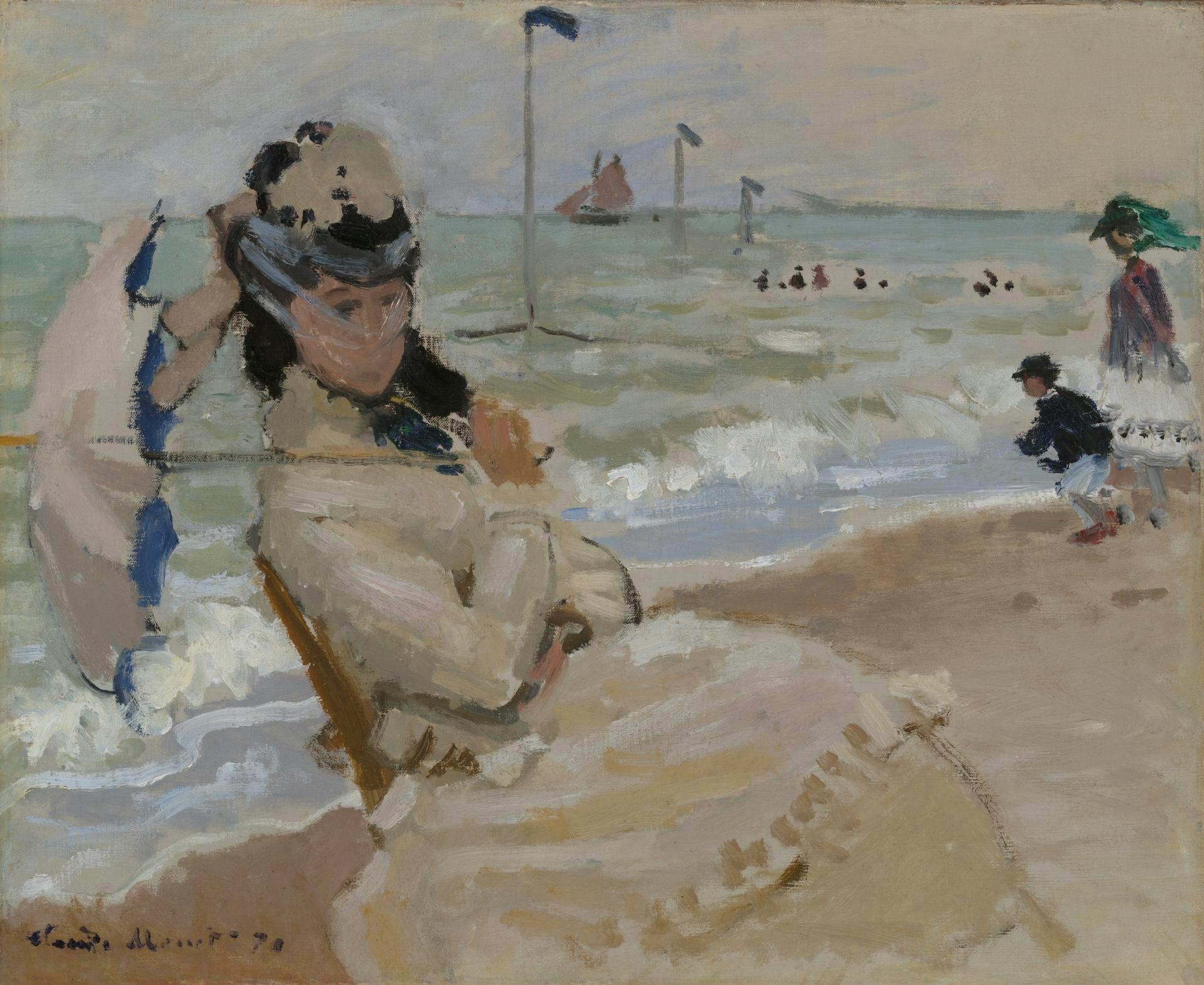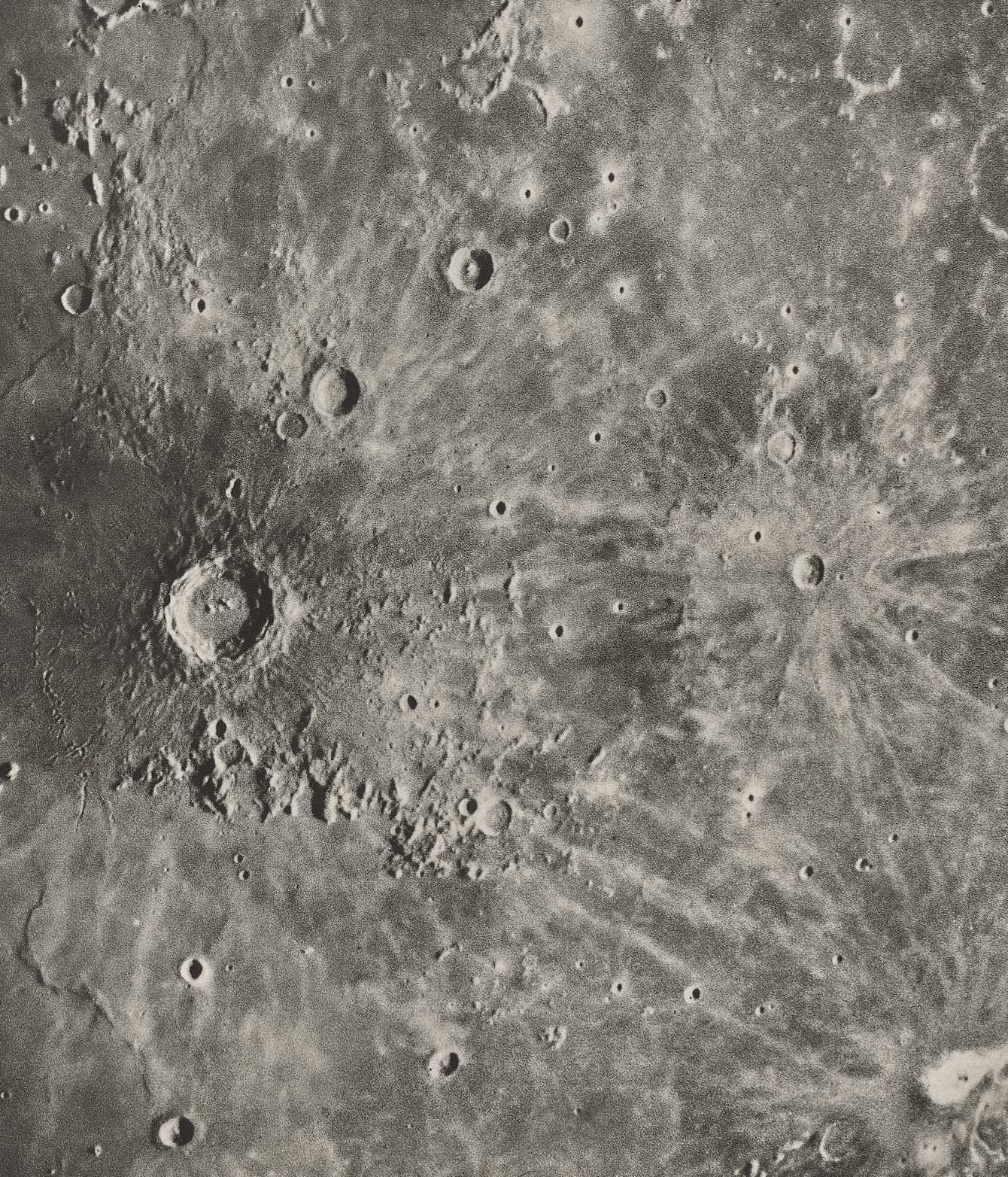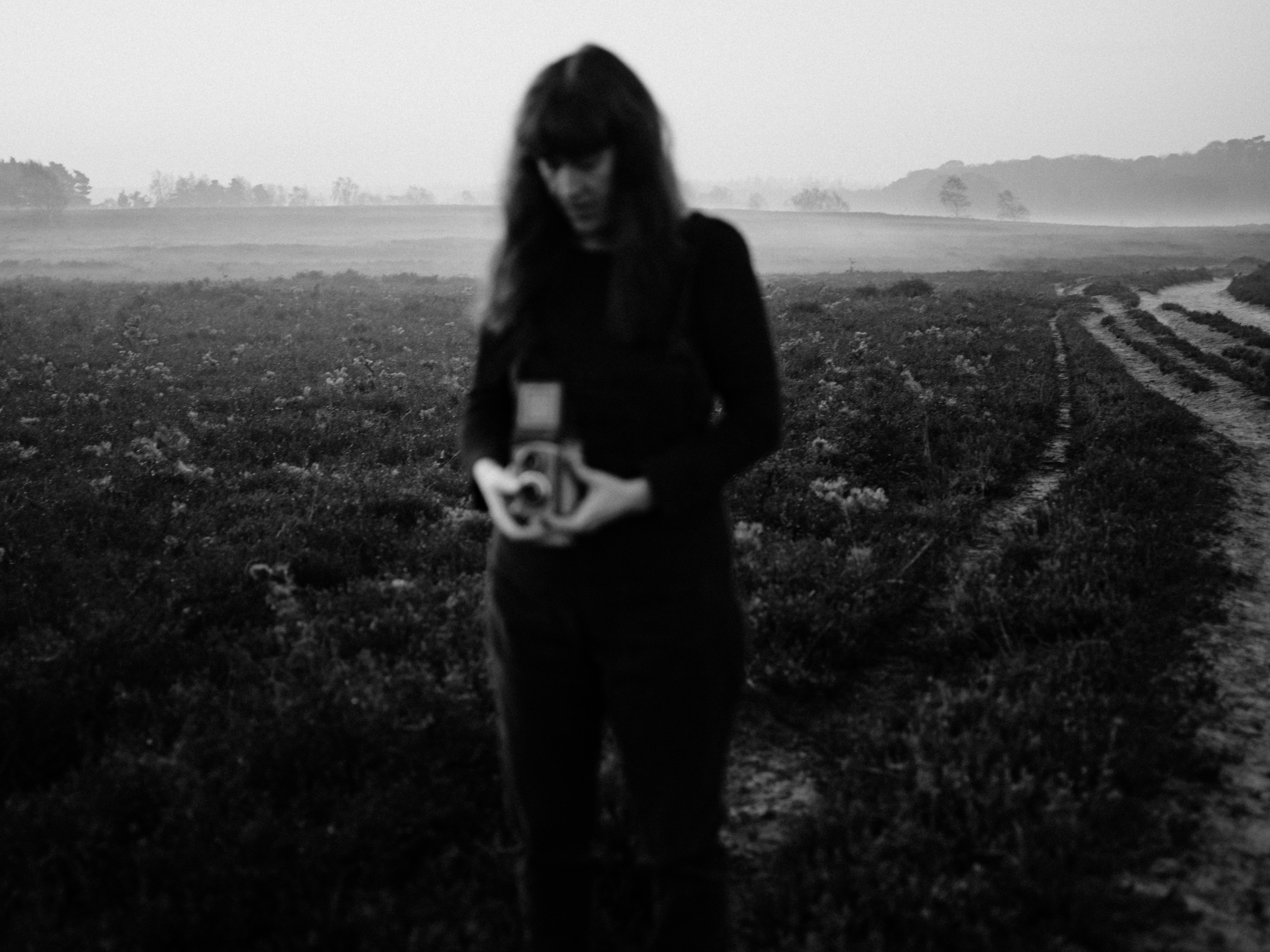It was summer; and there was a patchiness to the weather. At moments, the sky was golden, then so bright that it bleached the landscape, turning everything to the color of sand. When the sun was out, it hurt to look for too long—so you glanced down, seeing color flash across beige. Where you stood, the sand was soft, grainy, and warm, not yet lapped by the tide.
On the beach, parasols opened and closed, mothers clasped children’s hands when the breeze turned to wind. The brave plod out into the sea, treading water, making the most of their day, their summer, so they could return to Paris and tell their colleagues and schoolmates and neighbors what they did in Trouville, which has sur-mer in its name, in case you forgot.
When you looked out towards the water, it foamed and sparkled, spit and danced. The waves gathered themselves, rolling perpetually around the flagpoles. Most of the sailors had turned in for the day; only one boat was still at sea. The boat sat where the water clung to the sky, where the horizon stretched into a panorama.
You stepped away to take it in. To remember for you (not for Paris), this day spent en plein air. It was noisy then, the wind battering the flags and awnings, the children shrieking alternately from cold water and delight. Their parents looked at each other, their conversations lost to the wind. The beach assembled itself like a miniature city, all the dynamics repeated, perpetually, like the waves.
The woman in front of you, dressed fashionably for her honeymoon, is sitting in a folding chair taken from her hotel. She sits with her back to the water. Who is going to tell her that the waves are behind her? How long has she been in Trouville to want to turn away from the view? She seems to be waiting for her husband to finish what he is doing (he is hard at work), and as time passes, she seems to blend into the sand, somewhere between a ghostly apparition and a fixture in the landscape.
Now that you think of it, how long have you been in Trouville? There was the day the shaggy dog ran off its lead and found you, the morning that you craved ice cream for breakfast, the evening where the chill crept up so suddenly, and you decided to bear it instead of going back for a coat. Or maybe those were all the same day? It seems to be the place that marks time. You know it is June because you are in Trouville.
What will you remember when you are back home, you wonder. The awe of seeing the beach the first evening you arrived, the vague figures silhouetted against the sunset, a rectangle of pink melting into a rectangle of orange, hovering above blue? In that moment, you had wondered what it would be like there, come dawn, come afternoon.
Essay based on Camille on the Beach in Trouville by Claude Monet (1870) in the Yale University Art Gallery.
Sarah Bochicchio is a writer and art historian focused on fashion, image, gender, and the self. She has contributed to journalistic, academic, and museum publications, including Art Papers, Art & Object,and the recent exhibition catalogue for The Tudorsat the Metropolitan Museum of Art. She is currently pursuing her PhD in History of Art at Yale University.
Discover more from Sarah Bochicchio.









